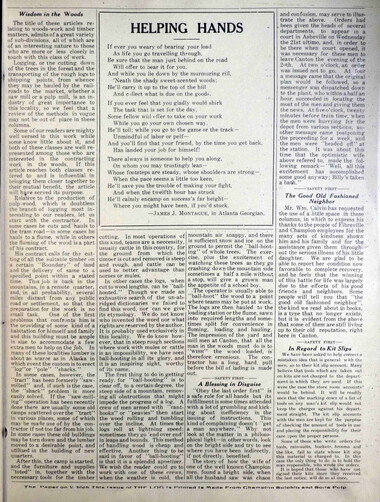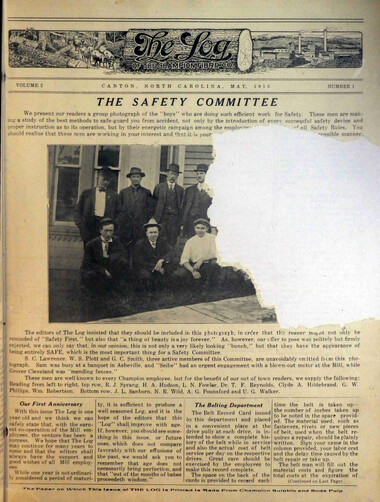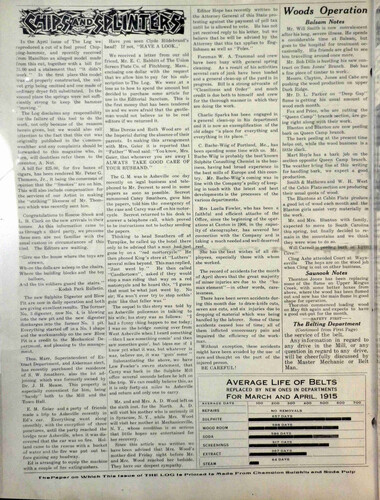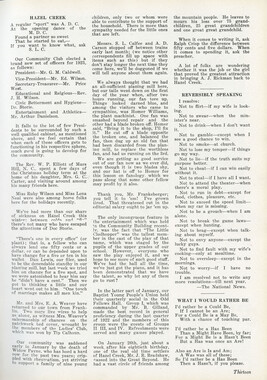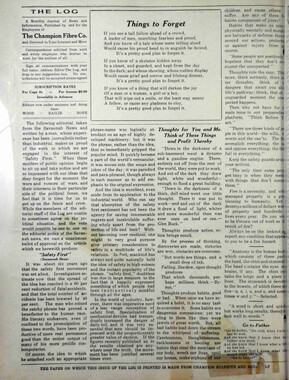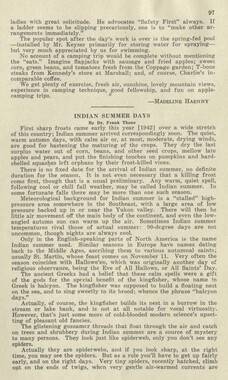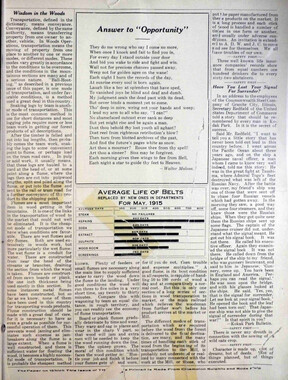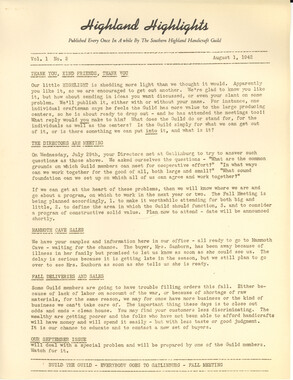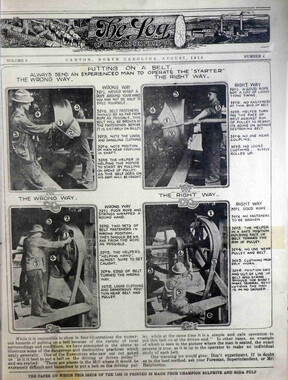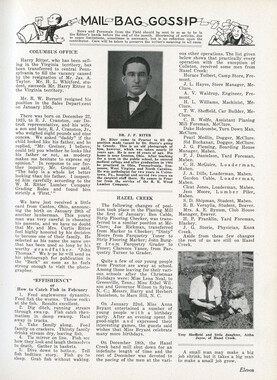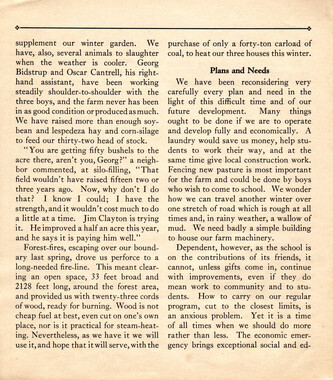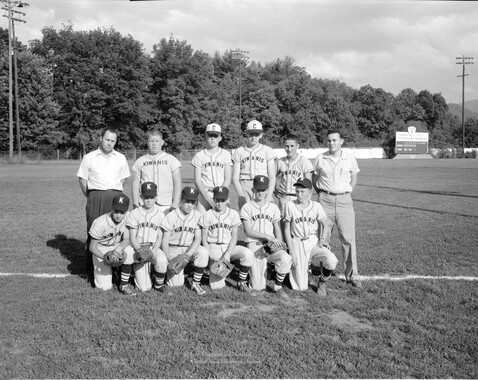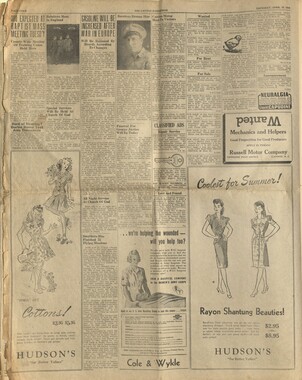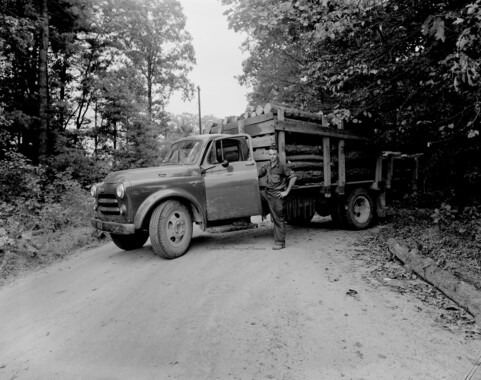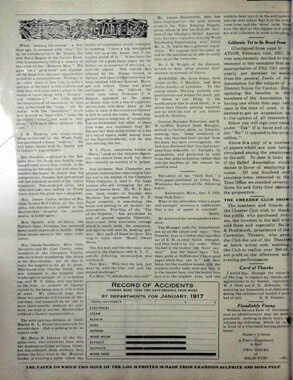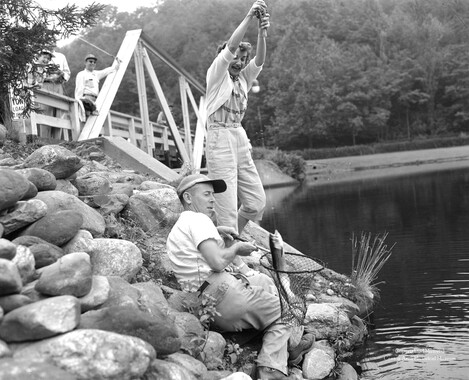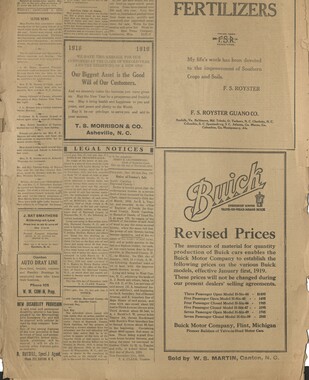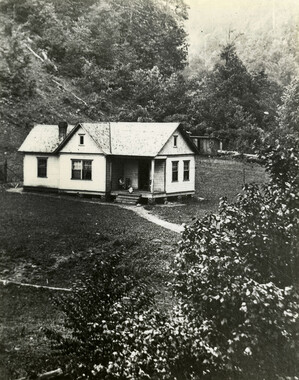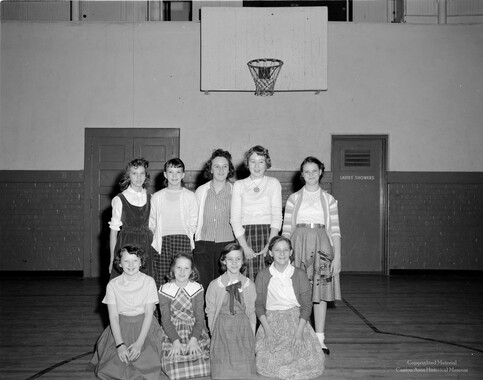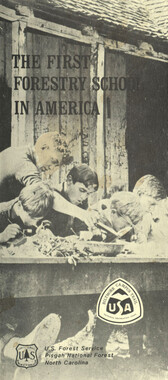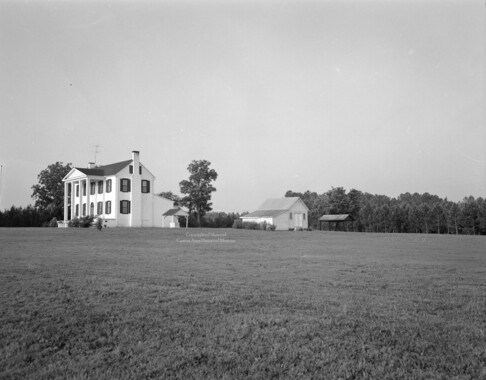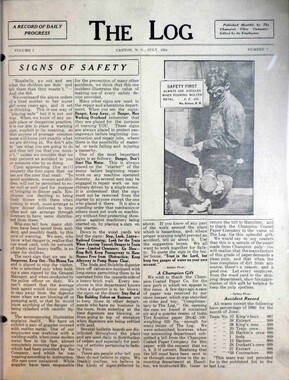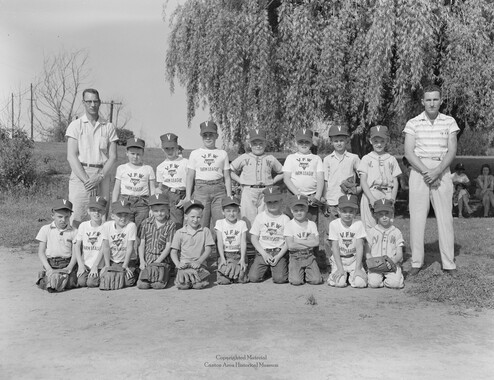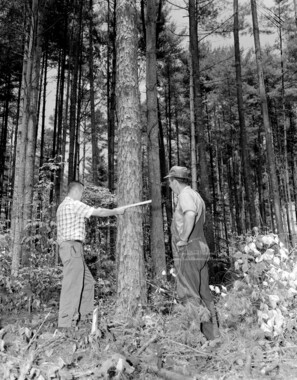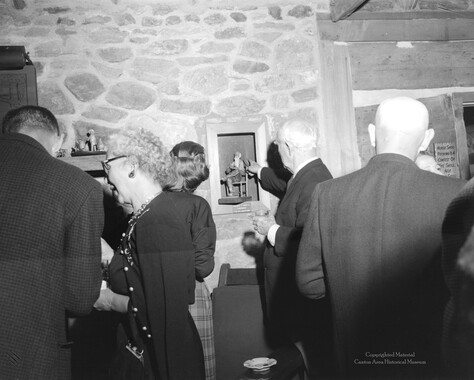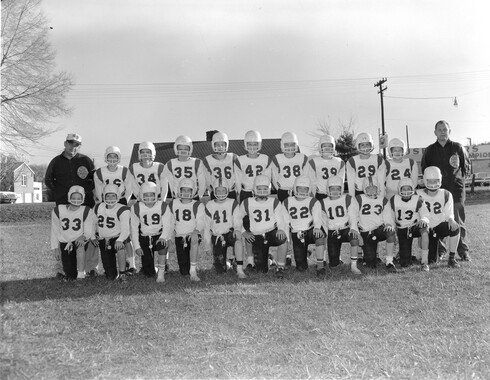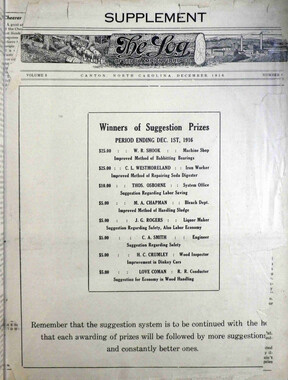Western Carolina University (20)
View all
- Canton Champion Fibre Company (2308)
- Cherokee Traditions (292)
- Civil War in Southern Appalachia (165)
- Craft Revival (1942)
- Great Smoky Mountains - A Park for America (2766)
- Highlights from Western Carolina University (430)
- Horace Kephart (941)
- Journeys Through Jackson (154)
- LGBTQIA+ Archive of Jackson County (85)
- Oral Histories of Western North Carolina (314)
- Picturing Appalachia (6772)
- Stories of Mountain Folk (413)
- Travel Western North Carolina (160)
- Western Carolina University Fine Art Museum Vitreograph Collection (129)
- Western Carolina University Herbarium (92)
- Western Carolina University: Making Memories (708)
- Western Carolina University Publications (2283)
- Western Carolina University Restricted Electronic Theses and Dissertations (146)
- Western North Carolina Regional Maps (71)
- World War II in Southern Appalachia (131)
University of North Carolina Asheville (6)
View all
- Allanstand Cottage Industries (62)
- Appalachian National Park Association (53)
- Bennett, Kelly, 1890-1974 (1388)
- Berry, Walter (76)
- Brasstown Carvers (40)
- Carver, George Washington, 1864?-1943 (26)
- Cathey, Joseph, 1803-1874 (1)
- Champion Fibre Company (233)
- Champion Paper and Fibre Company (297)
- Cherokee Indian Fair Association (16)
- Cherokee Language Program (22)
- Crowe, Amanda (40)
- Edmonston, Thomas Benton, 1842-1907 (7)
- Ensley, A. L. (Abraham Lincoln), 1865-1948 (275)
- Fromer, Irving Rhodes, 1913-1994 (70)
- George Butz (BFS 1907) (46)
- Goodrich, Frances Louisa (120)
- Grant, George Alexander, 1891-1964 (96)
- Heard, Marian Gladys (60)
- Kephart, Calvin, 1883-1969 (15)
- Kephart, Horace, 1862-1931 (313)
- Kephart, Laura, 1862-1954 (39)
- Laney, Gideon Thomas, 1889-1976 (439)
- Masa, George, 1881-1933 (61)
- McElhinney, William Julian, 1896-1953 (44)
- Niggli, Josephina, 1910-1983 (10)
- North Carolina Park Commission (105)
- Osborne, Kezia Stradley (9)
- Owens, Samuel Robert, 1918-1995 (11)
- Penland Weavers and Potters (36)
- Roberts, Vivienne (15)
- Roth, Albert, 1890-1974 (142)
- Schenck, Carl Alwin, 1868-1955 (1)
- Sherrill's Photography Studio (2565)
- Southern Highland Handicraft Guild (127)
- Southern Highlanders, Inc. (71)
- Stalcup, Jesse Bryson (46)
- Stearns, I. K. (213)
- Thompson, James Edward, 1880-1976 (226)
- United States. Indian Arts and Crafts Board (130)
- USFS (683)
- Vance, Zebulon Baird, 1830-1894 (1)
- Weaver, Zebulon, 1872-1948 (58)
- Western Carolina College (230)
- Western Carolina Teachers College (282)
- Western Carolina University (1794)
- Western Carolina University. Mountain Heritage Center (18)
- Whitman, Walt, 1819-1892 (10)
- Wilburn, Hiram Coleman, 1880-1967 (73)
- Williams, Isadora (3)
- Cain, Doreyl Ammons (0)
- Crittenden, Lorraine (0)
- Rhodes, Judy (0)
- Smith, Edward Clark (0)
- Appalachian Region, Southern (2569)
- Asheville (N.C.) (1923)
- Avery County (N.C.) (26)
- Blount County (Tenn.) (161)
- Buncombe County (N.C.) (1672)
- Cherokee County (N.C.) (283)
- Clay County (N.C.) (555)
- Graham County (N.C.) (233)
- Great Smoky Mountains National Park (N.C. and Tenn.) (519)
- Haywood County (N.C.) (3524)
- Henderson County (N.C.) (70)
- Jackson County (N.C.) (4694)
- Knox County (Tenn.) (25)
- Knoxville (Tenn.) (12)
- Lake Santeetlah (N.C.) (10)
- Macon County (N.C.) (420)
- Madison County (N.C.) (212)
- McDowell County (N.C.) (39)
- Mitchell County (N.C.) (132)
- Polk County (N.C.) (35)
- Qualla Boundary (981)
- Rutherford County (N.C.) (76)
- Swain County (N.C.) (2115)
- Transylvania County (N.C.) (270)
- Watauga County (N.C.) (12)
- Waynesville (N.C.) (84)
- Yancey County (N.C.) (72)
- Aerial Photographs (3)
- Aerial Views (60)
- Albums (books) (4)
- Articles (1)
- Artifacts (object Genre) (228)
- Bibliographies (1)
- Biography (general Genre) (2)
- Cards (information Artifacts) (38)
- Clippings (information Artifacts) (191)
- Crafts (art Genres) (622)
- Depictions (visual Works) (21)
- Design Drawings (1)
- Drawings (visual Works) (184)
- Envelopes (73)
- Facsimiles (reproductions) (1)
- Fiction (general Genre) (4)
- Financial Records (12)
- Fliers (printed Matter) (67)
- Glass Plate Negatives (381)
- Guidebooks (2)
- Internegatives (10)
- Interviews (815)
- Land Surveys (102)
- Letters (correspondence) (1013)
- Manuscripts (documents) (618)
- Maps (documents) (177)
- Memorandums (25)
- Minutes (administrative Records) (59)
- Negatives (photographs) (5835)
- Newsletters (1285)
- Newspapers (2)
- Occupation Currency (1)
- Paintings (visual Works) (1)
- Pen And Ink Drawings (1)
- Periodicals (193)
- Personal Narratives (10)
- Photographs (12976)
- Plans (maps) (1)
- Poetry (6)
- Portraits (4533)
- Postcards (329)
- Programs (documents) (151)
- Publications (documents) (2236)
- Questionnaires (65)
- Scrapbooks (282)
- Sheet Music (2)
- Slides (photographs) (402)
- Songs (musical Compositions) (2)
- Sound Recordings (796)
- Specimens (92)
- Speeches (documents) (15)
- Tintypes (photographs) (8)
- Transcripts (322)
- Video Recordings (physical Artifacts) (23)
- Vitreographs (129)
- Text Messages (0)
- A.L. Ensley Collection (275)
- Appalachian Industrial School Records (7)
- Appalachian National Park Association Records (336)
- Axley-Meroney Collection (2)
- Bayard Wootten Photograph Collection (20)
- Bethel Rural Community Organization Collection (7)
- Blumer Collection (5)
- C.W. Slagle Collection (20)
- Canton Area Historical Museum (2110)
- Carlos C. Campbell Collection (282)
- Cataloochee History Project (64)
- Cherokee Studies Collection (4)
- Daisy Dame Photograph Album (5)
- Daniel Boone VI Collection (1)
- Doris Ulmann Photograph Collection (112)
- Elizabeth H. Lasley Collection (1)
- Elizabeth Woolworth Szold Fleharty Collection (4)
- Frank Fry Collection (95)
- George Masa Collection (173)
- Gideon Laney Collection (452)
- Hazel Scarborough Collection (2)
- Hiram C. Wilburn Papers (28)
- Historic Photographs Collection (236)
- Horace Kephart Collection (861)
- Humbard Collection (33)
- Hunter and Weaver Families Collection (1)
- I. D. Blumenthal Collection (4)
- Isadora Williams Collection (4)
- Jesse Bryson Stalcup Collection (47)
- Jim Thompson Collection (224)
- John B. Battle Collection (7)
- John C. Campbell Folk School Records (80)
- John Parris Collection (6)
- Judaculla Rock project (2)
- Kelly Bennett Collection (1407)
- Love Family Papers (11)
- Major Wiley Parris Civil War Letters (3)
- Map Collection (12)
- McFee-Misemer Civil War Letters (34)
- Mountain Heritage Center Collection (4)
- Norburn - Robertson - Thomson Families Collection (44)
- Pauline Hood Collection (7)
- Pre-Guild Collection (2)
- Qualla Arts and Crafts Mutual Collection (12)
- R.A. Romanes Collection (681)
- Rosser H. Taylor Collection (1)
- Samuel Robert Owens Collection (94)
- Sara Madison Collection (144)
- Sherrill Studio Photo Collection (2558)
- Smoky Mountains Hiking Club Collection (616)
- Stories of Mountain Folk - Radio Programs (374)
- The Reporter, Western Carolina University (510)
- Venoy and Elizabeth Reed Collection (16)
- WCU Gender and Sexuality Oral History Project (32)
- WCU Mountain Heritage Center Oral Histories (25)
- WCU Oral History Collection - Mountain People, Mountain Lives (71)
- WCU Students Newspapers Collection (1744)
- Western North Carolina Tomorrow Black Oral History Project (69)
- William Williams Stringfield Collection (2)
- Zebulon Weaver Collection (109)
- African Americans (390)
- Appalachian Trail (35)
- Artisans (521)
- Cherokee art (84)
- Cherokee artists -- North Carolina (10)
- Cherokee language (21)
- Cherokee pottery (101)
- Cherokee women (208)
- Church buildings (170)
- Civilian Conservation Corps (U.S.) (110)
- College student newspapers and periodicals (1830)
- Dams (107)
- Dance (1023)
- Education (222)
- Floods (61)
- Folk music (1015)
- Forced removal, 1813-1903 (2)
- Forest conservation (220)
- Forests and forestry (1184)
- Gender nonconformity (4)
- Great Smoky Mountains National Park (N.C. and Tenn.) (181)
- Hunting (38)
- Landscape photography (25)
- Logging (118)
- Maps (83)
- Mines and mineral resources (8)
- North Carolina -- Maps (18)
- Paper industry (38)
- Postcards (255)
- Pottery (135)
- Railroad trains (71)
- Rural electrification -- North Carolina, Western (3)
- School integration -- Southern States (2)
- Segregation -- North Carolina, Western (5)
- Slavery (5)
- Sports (452)
- Storytelling (244)
- Waterfalls -- Great Smoky Mountains (N.C. and Tenn.) (66)
- Weaving -- Appalachian Region, Southern (280)
- Wood-carving -- Appalachian Region, Southern (328)
- World War, 1939-1945 (173)
The Log Vol. 2 No. 1
Item
Item’s are ‘child’ level descriptions to ‘parent’ objects, (e.g. one page of a whole book).
-
-
Wisdom in the Wooc/s ;" !• o! these articles relating to woods-work and timber matters, admits of a great variety of sub-divisions, all of which are of an interesting nature to those who are more or less closely in touch with this class of work. L !>g. or the cutting down of the trees in the forest and the ! transporting of the rough logs to shipping points, from whence they may be hauled by the railroads to the market,"whether a saw mill or a pulp mill, is an industry of great importance to this locality, so we feel that a review of the methods in vogue may not be out of place in these columns. Some of our readers are mighty well versed in this work while some know little about it, and both of these classes are well represented among those who are interested in the contracting work in the woods. If this article reaches both classes re- fered to and is influential in ng them closer together to their mutual benefit, the article will ha,ve served its purpose. Relative to the production of ood. which is doubtless the branch of logging most interesting to our readers, let us Start with the contractor. In some cases he cuts and" hauls to the tram road —in some cases he hauls to a flume, while in others the fluming of the wood is a part of his contract. His contract calls for ths cutting of all the suitable timber on a certain "Boundary" of land and the delivery of same to a d point within a stated rime. This job is back in the tins, in a remote quarter, and, in all probability, several mile; distant from any public road or settlement, so that the lion for the work is no small task. One of the first problems that confronts him is the providing of some kind of a on for himself and family and this building must be ample to accommodate a few extra men to help on the Job. In many of these localities lumber is about as scarce as in Alaska in which event the custom is to erect "log"or "pole" "shacks." In some cases, however, the "tract" has been formerly "saw- milled" and, if such isthe case, the "shack" problem is more easily solved. If the "saw-mill- • ration has been recently- done there are usually some old scattered over the "tract" ■ ,;!- places, some of which be made use of bv the con- k tractor if not too far from his job. \ in some ease; these old buildings may be torn down and the lumber moved to a desirable point, and utilized in the building of new quarters. After this, the camp is started, and the furniture and supplies toted" in, together with the HELPING HANDS If ever you weary of bearing your load As life you go travelling through, Be sure that the man just behind on the road Will offer to bear it for you. And while you lie down by the murmuring rill, 'Neath the shady sweet-scented woods: He'll carry it up to the top of the hill And collect what is due on the goods. If you ever feel that you gladly would shirk The task that is set for the day, Some fellow will oiler to take on your work While you go your own chosen way. He'll toil; while you go to the game or the track- Unmindful of labor or pelf— And you'll find that your friend, by the time you get back, Has landed your job for himself! There always is someone to help you along. On whom you may trustingly lean — Whose footsteps are steady, whose shoulders are strong—_ When the pace seems a little too keen. He'll save you the trouble of making your fight, And when the twelfth hour has struck He'll calmly encamp on success's far height— Where you might have been, if you'd stuck. —James J. Montague, in Atlanta Georgian. cutting. In most 'operations of this kind, teams are a neccessity usually cattle in this country, for the ground from which the timoer is cut and removed is steep and rough, ,and Cattle can be used to netter advantage than norses or mules. In other cases the logs, when cut to wood lengths, can be "ball- hooted." Though we made an exhaustive search of the un-ab- ridged dictionaries we faiied to find this word, nor can we give its etymology. We do not know who invented the word nor what rights are reserved by the author It is probably used exclusively in this locality. We do know how ever, that in steep rough sections where work with mules or cattle is an impossibility, we have seen ball-hooting in all its glory, and it is an inspiring sight, worthy of its name. The first thing to do in getting ready for "ball-hooting" is to clear off, to a certain degree, the steep side of a mountain, removing all obstructions that might impede the progress of a log. A crew of men armed with "cant- I hooks" or "peavies" then start i the wood rolling and tumbling over the incline. At times the j logs roll at lightning speed I sometimes thevgo 'end over end ! in leaps and bounds. This method of handling wood is cheap and | effective. Another thing to be lid in favor of "ball-hooting" that it is a splendid apnetizer. 'e wish the reader could go to ork with one of these crews, hen the weather is cold, the! mountain air snappy, and there is sufficient snow and ice on the ground to permit the "ball-hooting" of whole trees. The exercise, plus the excitement of watching these trees as they go crashing down the mountain side sometimes a half a mile without a stop, will give, a grown man the appetite of a school boy. (.The operator is usually able to "ball-hoot" the wood to a point where teams may be put at work. The logs are then hauled to the loading station or the flume, sawn into required lengths and sometimes split for convenience in fluming, loading and hauling. The impression of the yard and mill men at Canton, that all the man in the woods must do is to "wish" the wood loaded, is therefore erronious. The contractor has a long, hard, pull before the bill of lading is made out. A Blessing in Disguise "Obey the last order first" is a safe rule for all hands but its fulfillment is some times attended with a let of grumbling and kick- j ing about inefficiency in the j issuing of instructions. This ! kind of complaining doesn't "get \ a man anywhere." Why not look at the matter in a philoso- i phical light- in other words, look the bright side and try to see . here ot flit ■ be idir trate the above. Ordi been given the heads of several departments, to appear in a court in Asheville on Wednesday the 21st ultimo, and, in order to be there when court Opened, it was necessary for these men to leave Canton the evening of the • plan would be followed » I messenger was dispatched dowtt | to the plant, who within a ha! fan | hour, succeeded in locating the most of the men and giving them the news. At five o'clock, twenty minutes before train time, when the men were hurrying for the depot from variou other message came postponing .the proceeding for a week, and the men were "headed off" at the station. It was about this time that the optimistic wife above refered to, made the following remark-"Well, all this excitement has accomplished some good anyway; Billy's taken a babh." —safety first The Good Old Fashioned Neighbor Mr. Wm. Calvin has requested the use of a little space in these columns, in which to express his thanks to the people of Fibreville and Champion employees for the many acts of kindness shown' him and his family and for the assistance given them throughout the serious illness of his little daughter. We are glad to be able to report her condition now favorable to complete recovery, and he feels that the winning of this battle for life was largely due to the efforts of his good friends and neighbors. Some people will tell you that "the good old fashioned neighbor", the kind we read about in books, is a type that no longer exists, but it is evident from the above that some of them are still living up to their old reputation, right here in Canton. SAFETY FIRST In Regard to Kit Slips We have been asked to help corre.-r a mistaken idea that is genera] with the ed. 11 the husband saw
Object
Object’s are ‘parent’ level descriptions to ‘children’ items, (e.g. a book with pages).
-
Between 1914 and the late 1960s, the Champion Fibre Company published an internal newsletter, called The Log, to share news about the Canton mill, the community, and its employees. After 1940, news from the entire “Champion Family,” which included mills in Hamilton, Ohio; Houston, Texas and Sandersville, Georgia, was featured in each issue.
-
